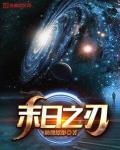Volume 3: Dance of the Aurora Chapter 8 What is life
The bracelet turned into a padlock, and Fang Cheng became the lock core. The whole process took less than a second. His vision was suddenly covered by a green light, and he subconsciously closed his eyes. At this time, a familiar voice sounded in his mind.
"This vehicle can achieve rapid movement on the surface of a planet, so it is called a 'surface ring'. In our language, all the orbits of spacecraft that will eventually be captured by a planet are collectively called surface orbits, which is also the origin of its name."
Fang Cheng felt that it was gradually getting dark around him. He opened his eyes and the scene in front of him was not the densely packed instruments and numbers he had imagined, but only a few faint spots of light that could be seen by the naked eye.
"Why can this ring grow so big that it can directly wrap around me? Where does this extra material come from?"
"Isn't it obvious? When you put your hand into the ring just now, wasn't it already inside it? Mathematically, this is just a simple homotopy transformation, which is very easy to implement..."
In other words, the topological properties of the ring on the hand and the current metal lock are exactly the same. However, the other party did not seem to directly answer Fang Cheng's question.
While the alien was explaining the principles, Fang Cheng looked carefully inside the small eggshell, wondering how he could get back to the surface.
Soon after, his eyes focused on the brightest spot of light.
The next moment Fang Cheng felt a huge upward acceleration. Different from the "pushing back feeling" when riding in a car, this acceleration acted evenly on his whole body, just like being held by a big hand.
His vision quickly went black, followed by a dizziness.
When he reacted again, he was already standing on the bluestone bricks of the old house. The green in front of him disappeared naturally as if melting into the air, and Xu Xia, who was running around in a panic, appeared in his field of vision.
"You finally came up! I couldn't go down to find you just now! I really don't know what to do..."
He rushed over, held Fang Cheng's shoulders, and spit all over his face.
"What's that in your hand? Did you change those two keys? Or did you take it from inside?"
"I took it from inside. This bracelet is... a three-dimensional maneuvering device... and this cake..."
"It's an electromagnetic lens."
A familiar voice rang in Fang Cheng's mind, and the alien seemed to accept the name "3D Maneuvering Device".
He relayed the conversation in his mind to Xu Xia, who then held onto the wall and gasped after letting go of his shoulders.
After seeing Fang Cheng, Xu Xia relaxed. He wiped the sweat off his forehead, found a dirty chair in the room and sat down on the floor.
The two of them sat in silence. At this moment, Fang Cheng noticed the shrill buzzing of the air raid alarm outside the house.
"This...is this the alien you mentioned talking to you?"
"I think...right..."
"That's right, I'm certainly not a creature evolved from your planet."
Keats recalled the history of his own civilization and was not even sure whether his own kind originated from a planet.
In fact, scientists themselves have different opinions about the origin of metal life, but overall they can be divided into two schools:
The first is the spontaneous emergence hypothesis; its core idea is that metallic life emerged from complex structures randomly generated by various complex interactions in the universe. The earliest life form may be a piece of meteorite that was hit and irradiated, a piece of iron on the surface of a planet that was bombarded by strong particle flows and had complex patterns, or even a pool of magma that slowly solidified into textures under the surface of a solid planet.
Scientists have estimated the probability of complex structures emerging naturally in the universe through simulations, and the probability is much lower than the probability of a monkey playing the "Turkish March" on the piano. However, considering the extremely long age of the universe, this hypothesis is still tenable.
The second is the creation hypothesis: this hypothesis arises from the fact that the self-etching technology of metal life has become increasingly mature, and their control over their offspring has become increasingly sophisticated, causing them to suspect that they are actually the creations of a more advanced civilization.
This is a bit similar to humans thinking that they are God's creation. The difference is that metal life does not think of itself as the darling of some advanced civilization, but is more likely to be a defective product or a casual creation. After all, their current self-replication technology is much more efficient than the process of reproduction based on instinct in primitive times.
Keats was a staunch supporter of the second hypothesis, and now he had strong evidence that the protozoa were created by carbon-based organisms that had just been born on Earth.
As for what a protozoa is, to understand this clearly we must first understand how to define life.
The answer given by the universe is that life meets the following two points:
First, it can absorb energy from the outside world to supply itself and carry out metabolism; second, it can replicate itself to reproduce.
As long as they meet these two requirements, any semi-open material organization form, no matter what material or skeleton they are made of, no matter whether they are gaseous, solid, liquid or plasma, can be considered to be carrying out biological processes.
There are two basic requirements to meet these two points. First, the material system can transmit information to each other and between the material system and the environment. Second, the material system can ensure its own structural stability. Both of these requirements require life to eat negative entropy to maintain.
life feeds on negative entropy.
——Erwin Schrödinger, 1956
In fact, in Keats's civilization, negative entropy itself exists as currency. In his knowledge system, all metal skeleton life forms that are not reproduced by "this civilization" are called protozoa.
Observers supporting both hypotheses about the origin of life have been desperately searching the universe for protozoa that could serve as evidence, but they have found very few, and most of the results are unconvincing.
The process of creating protozoa by the hands of carbon-based organisms was almost live-broadcasted by Keats, who knew that he would go down in history for this discovery.
"...Why didn't you talk to us this way in the beginning?"
Fang Cheng stared at Xu Xia's face covered with sweat, and after holding back his silence for a long time, he finally broke the silence.
"I told you before that this kind of communication requires a medium. Now that I have the surface ring, I can easily influence your consciousness current."
Silence again.
The human brain has cognitive inertia. In other words, ordinary people have an upper limit to their acceptance of sudden changes, and this upper limit will create resistance and hinder further thinking.
For Fang Cheng, the information he received in just a few hours tonight had already exceeded the upper limit of what an ordinary person could accept.
The fact that his rationality has not collapsed is directly attributed to years of thinking training and the strong psychological adjustment ability developed by the college entrance examination.
After trying his best to calm down his emotions, his mind was still filled with endless questions.
What does the alien he is talking to look like? What is their social structure and technological level? How much do they know about the universe? When have they been there? How do they view humans? Why do they want to help humans solve the crisis at hand...
In fact, Fang Cheng had no idea what the current crisis was, what potential consequences the "protozoa" mentioned by the other party would cause, and how to deal with the current situation.
From the moment he received the call, everything he did in accordance with the instructions of Observer No. 1 was out of fear and the instinct for survival, with no rational involvement at all.
Sorry, Keats, I've kept you waiting for so long. Are you impatient now?
"No, according to the regulations I will not give you any instructions. Whether to take action, when to take action, and how to take action are all entirely up to you. I am only responsible for providing information and necessary equipment."
It seemed as if it had just said this.
If I don't take action now, will it be too late?
"The protozoan will soon start the process of self-increase. The longer you delay, the greater the scale of damage it will cause to your city. This is also obvious, right?. "






